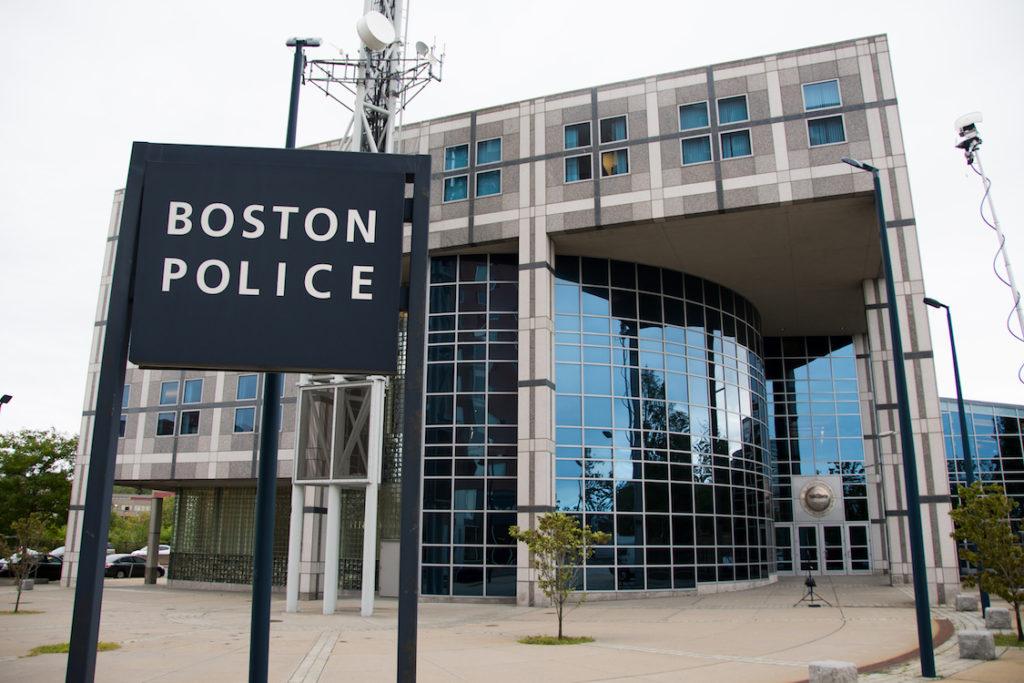By Olivia Arnold, deputy city editor
A Suffolk Superior Court judge ruled Friday that a pilot program requiring 100 Boston police officers to wear body cameras will proceed in spite of opposition from the department’s union, according to a 19-page ruling posted online by the Boston Globe.
After two days of hearings, Judge Douglas H. Wilkins denied an injunction filed by the Boston Police Patrolmen’s Association (BPPA) against the City of Boston that asked the court to prohibit Boston Police Department (BPD) Commissioner William B. Evans from assigning officers to a six-month body camera trial.
“I am pleased with the Court’s decision to allow the pilot program to move forward,” Evans said in a statement on Friday. “I remain committed to working with the BPPA and their members to ensure a smooth implementation of the program.”
BPPA President Patrick Rose said in a statement that he was disappointed with the court’s ruling, but that he still believed filing the injunction was the right thing to do.
“If we don’t fight to preserve our collective bargaining rights, we could lose those rights,” Rose said. “If we don’t challenge the city when they violate signed agreements, then how can we enforce agreements in the future?”
Rose reaffirmed BPPA’s commitment to working with the City of Boston and BPD to establish a body camera program that works as it is intended and respects the rights of citizens and police officers.
The 100 officers wearing body cameras in the trial were originally intended to be volunteers, according to an agreement reached in July between BPD and BPPA. When none of the 1,200 eligible officers volunteered, the department notified the union in August that officers would be assigned to the program.
The union charged that mandating officers to do the program violated the terms of its earlier agreement with Evans. In his ruling, Wilkins disagreed, citing a 1962 law known as the “Commissioner’s Statute” that gives the commissioner authority over officers’ uniforms and weapons. Moreover, the court said, the statute has been used in past cases to allow the commissioner to alter an assignment from voluntary to mandatory.
BPPA also argued that the mandatory body camera program created an increased risk for officers, citing a May 2016 study by the Rand Corporation, a nonprofit think tank that develops solutions to policy issues. Examining data from 2,000 police officers in eight departments in the U.S. and the U.K., the Rand Study found that assaults on officers increased 15 percent when they wore body cameras and that there was an increased use of force by officers who could turn body cameras off.
The results of the Rand Study, Wilkins wrote, were inconclusive at best. Other studies have since conflicted its findings, he said, and the report did not focus on Boston.
The end of the ruling pointed out that “the Union’s alleged injury is, in significant part, self-inflicted.” Wilkins explained that, under their July agreement, BPD and BPPA had a shared responsibility to implement a body camera pilot program based on volunteers.
“The Court agrees with both sides’ witnesses that, with active efforts by the BPPA to recruit volunteers from its ranks, at least 100 volunteers likely would have materialized — certainly not zero,” the ruling said.
While the court said it was not accusing BPPA of any misconduct, it ruled that the union shared in the blame for the failure of the program to recruit volunteers.
“An injunction effectively rewarding the BPPA for its lackluster efforts to ensure the [agreement’s] successful implementation would be unjust,” the ruling said.
Sophie Mekjian, a third-year business administration major, said that the body camera program would be an interesting short-term experiment, but she doesn’t think it should be a permanent addition to the police department.
“It might be interesting to do short-term if there are any problems, but it would be invasive long-term,” Mekjian said. “I wouldn’t want a camera on me on the job.”
Pavel Potpov, a senior computer science major, said his support for the program depended on the reasoning behind it.
“If it is to […] justify an officer’s actions, then maybe yes,” Potpov said, adding that he thought the cameras were unnecessary if officers had partners to back up their reports.
The ruling came a day after Evans announced that Superintendent-in-Chief William Gross and seven other members of the BPD command staff had volunteered for the body camera program.
Rose, the BPPA president, said he believes the body camera program will show the good work of the officers.
“I believe what we are going to find is that the body-worn cameras will highlight the good work that is done by the members of the BPPA every day to protect and serve the people who live, work and visit the City of Boston,” Rose said.
Alejandro Serrano contributed to this story.
File photo by Brian Bae.





![A demonstrator hoists a sign above their head that reads, "We [heart] our international students." Among the posters were some listing international scientists, while other protesters held American flags.](https://huntnewsnu.com/wp-content/uploads/2025/06/image12-1200x800.jpg)









